|
Books Should Be Free Loyal Books Free Public Domain Audiobooks & eBook Downloads |
|
|
Books Should Be Free Loyal Books Free Public Domain Audiobooks & eBook Downloads |
|
Books on Politics |
|---|
Book type:
Sort by:
View by:
|
By: Leo Tolstoy (1828-1920) | |
|---|---|
 Bethink Yourselves!
Bethink Yourselves!
As Russia goes to war against Japan, Tolstoy urges those at all levels of society, from the Tsar down to the common soldier, to consider their actions in the light of Christ's teaching. "However strange this may appear, the most effective and certain deliverance of men from all the calamities which they inflict upon themselves and from the most dreadful of all—war—is attainable, not by any external general measures, but merely by that simple appeal to the consciousness of each separate man which, nineteen hundred years ago, was proposed by Jesus—that every man bethink himself, and ask himself, who is he, why he lives, and what he should and should not do... | |
By: Mark Twain (1835-1910) | |
|---|---|
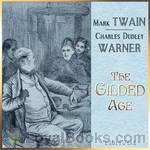 The Gilded Age, A Tale of Today
The Gilded Age, A Tale of Today
The Gilded Age: A Tale of Today is an 1873 novel by Mark Twain and Charles Dudley Warner that satirizes greed and political corruption in post-Civil War America. The term gilded age, commonly given to the era, comes from the title of this book. Twain and Warner got the name from Shakespeare's King John (1595): "To gild refined gold, to paint the lily... is wasteful and ridiculous excess." Gilding a lily, which is already beautiful and not in need of further adornment, is excessive and wasteful, characteristics of the age Twain and Warner wrote about in their novel... | |
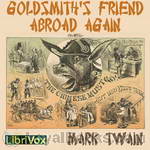 Goldsmith's Friend Abroad Again
Goldsmith's Friend Abroad Again
This satire on the U.S.A.'s myth of being the "Home of the Oppressed, where all men are free and equal", is unrelenting in its pursuit of justice through exposure. It draws a scathingly shameful portrait of how Chinese immigrants were treated in 19th century San Francisco. (Introduction by John Greenman) | |
By: William Shakespeare (1564-1616) | |
|---|---|
 King John
King John
The Life and Death of King John, a history play by William Shakespeare, dramatises the reign of John, King of England (ruled 1199–1216), son of Henry II of England and Eleanor of Aquitaine and father of Henry III of England. It is believed to have been written in the mid-1590s but was not published until it appeared in the First Folio in 1623. John (24 December 1166 – 19 October 1216), also known as John Lackland or Softsword, was King of England from 6 April 1199 until his death. His reign... | |
By: Henrietta Elizabeth Marshall (1867-1941) | |
|---|---|
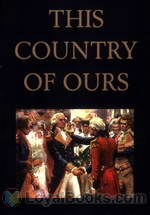 This Country of Ours
This Country of Ours
History made interesting for young readers—This Country of Ours by Henrietta Elizabeth Marshall provides a simple and easy to comprehend way of looking at the history of the United States. Arranged chronologically in seven long chapters, it presents events in a story form, making them memorable and very different from other formats. One of the challenges that writers of history face is about fleshing out the characters and making the bland repetition of dates and dynasties seem relevant to modern day readers... | |
By: H. G. Wells (1866-1946) | |
|---|---|
 Ann Veronica
Ann Veronica
Ann Veronica was a controversial book detailing the development of a naive school girl into a “New Woman”. When it was published, the Spectator described it as a “poisonous book … capable of poisoning the minds of those who read it.” Although it is unlikely to offend modern listeners in this way, this novel addresses many feminist issues that are still relevant today. | |
By: Jack London (1876-1916) | |
|---|---|
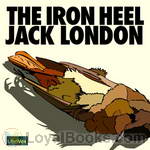 The Iron Heel
The Iron Heel
A dystopian novel about the terrible oppressions of an American oligarchy at the beginning of the Twentieth Century, and the struggles of a socialist revolutionary movement. (Introduction by Matt Soar) | |
By: Daniel Defoe (1661?-1731) | |
|---|---|
 The True-Born Englishman A Satire
The True-Born Englishman A Satire
| |
 Atalantis Major
Atalantis Major
| |
By: Oscar Wilde (1854-1900) | |
|---|---|
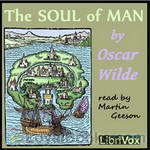 The Soul of Man
The Soul of Man
“(T)he past is what man should not have been. The present is what man ought not to be. The future is what artists are.”Published originally as “The Soul of Man Under Socialism,” this is not so much a work of sober political analysis; rather it can be summed up as a rhapsodic manifesto on behalf of the Individual. Socialism having deployed technology to liberate the whole of humanity from soul-destroying labour, the State obligingly withers away to allow the free development of a joyful, anarchic hedonism... | |
By: G. K. Chesterton | |
|---|---|
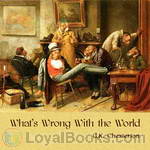 What's Wrong With the World
What's Wrong With the World
Gilbert Keith Chesterton (1874–1936) has been called the “prince of paradox.” Time magazine observed of his writing style: “Whenever possible Chesterton made his points with popular sayings, proverbs, allegories—first carefully turning them inside out.” His prolific and diverse output included journalism, philosophy, poetry, biography, Christian apologetics, fantasy and detective fiction. The title of Chesteron’s 1910 collection of essays was inspired by a title given to him two years earlier by The Times newspaper, which had asked a number of authors to write on the topic: “What’s wrong with the world?”... | |
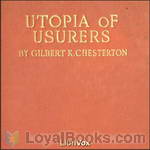 A Utopia of Usurers
A Utopia of Usurers
“Now I have said again and again (and I shall continue to say again and again on all the most inappropriate occasions) that we must hit Capitalism, and hit it hard, for the plain and definite reason that it is growing stronger. Most of the excuses which serve the capitalists as masks are, of course, the excuses of hypocrites. They lie when they claim philanthropy; they no more feel any particular love of men than Albu felt an affection for Chinamen. They lie when they say they have reached their position through their own organising ability... | |
By: Anthony Trollope | |
|---|---|
 Phineas Finn
Phineas Finn
Phineas Finn is the sequel to “Can you Forgive Her?” and the second novel in Trollope’s Palliser series. The eponymous hero is a young Irishman who becomes a member of the English parliament. Trollope aspired to become an M.P. himself, and he ably describes the workings of the English political scene. There is also a love interest, as the somewhat inconstant Phineas courts three different women: his Irish sweetheart, Mary Flood Jones; Lady Laura Standish, the daughter of a prominent Whig politician; and a lovely heiress, Violet Effingham. | |
 North America — Volume 1
North America — Volume 1
| |
By: Niccolò Machiavelli (1469-1527) | |
|---|---|
 History of Florence and of the Affairs of Italy
History of Florence and of the Affairs of Italy
History of Florence and of the Affairs of Italy is an historical account by Niccolò Machiavelli. Toward the end of 1520, the Cardinal Giulio of Medici, later Pope Clement VII, offered Machiavelli the appointment to write a history of Florence. Although Machiavelli was reluctant to accept, accepting was his only way to regain the good graces of the Medici who had regained power and were in a position to offer him employment and protection. Doing the history also provided a way for Machiavelli’s views to become the “official” history of Florentine and Italian affairs. Once completed, the work was presented officially to Giulio, now Pope, in May of 1526. | |
By: Abraham Lincoln (1809-1865) | |
|---|---|
 Abraham Lincoln Writings
Abraham Lincoln Writings
| |
 Abraham Lincoln's Second Inaugural Address
Abraham Lincoln's Second Inaugural Address
| |
 Abraham Lincoln's First Inaugural Address
Abraham Lincoln's First Inaugural Address
| |
 State of the Union Address
State of the Union Address
| |
By: Karl Marx (1818-1883) | |
|---|---|
 Selected Essays
Selected Essays
| |
 Eighteenth Brumaire of Louis Bonaparte
Eighteenth Brumaire of Louis Bonaparte
| |
By: John Milton (1608-1674) | |
|---|---|
 Areopagitica
Areopagitica
A prose tract or polemic by John Milton, published November 23, 1644, at the height of the English Civil War… Milton, though a supporter of the Parliament, argued forcefully against the Licensing Order of 1643, noting that such censorship had never been a part of classical Greek and Roman society. The tract is full of biblical and classical references which Milton uses to strengthen his argument. The issue was personal for Milton as he had suffered censorship himself in his efforts to publish... | |
By: Sigmund Freud | |
|---|---|
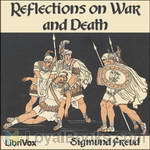 Reflections on War and Death
Reflections on War and Death
Anyone, as Freud tells us in Reflections on War and Death, forced to react against his own impulses may be described as a hypocrite, whether he is conscious of it or not. One might even venture to assert—it is still Freud’s argument—that our contemporary civilisation favours this sort of hypocrisy and that there are more civilised hypocrites than truly cultured persons, and it is even a question whether a certain amount of hypocrisy is not indispensable to maintain civilisation. When this... | |
By: Founding Fathers of the United States | |
|---|---|
 The Declaration of Independence of the United States of America
The Declaration of Independence of the United States of America
Declaration of Independence is the document in which the Thirteen Colonies declared themselves independent of the Kingdom of Great Britain and explained their justifications for doing so. It was ratified by the Continental Congress on July 4, 1776. | |
By: John Stuart Mill (1806-1873) | |
|---|---|
 The Subjection of Women
The Subjection of Women
The Subjection of Women is the title of an essay written by John Stuart Mill in 1869, possibly jointly with his wife Harriet Taylor Mill, stating an argument in favor of equality between the sexes. It offers both detailed argumentation and passionate eloquence in opposition to the social and legal inequalities commonly imposed upon women by a patriarchal culture. Just as in “On Liberty,” Mill defends the emancipation of women on utilitarian grounds, convinced that the moral and intellectual advancement of women would result in greater happiness for everybody. | |
 Considerations on Representative Government
Considerations on Representative Government
Mill's volume was published in 1861 as an argument favoring this form of governance. Mill covers what forms of government work best, including when representative government is applicable and when not. He details appropriate functions of representative bodies and warns of problems to avoid. He distinguishes between true and false democracy. Other areas covered include how voting is carried out, the role of a second chamber in Parliament, and how an executive branch might function. | |
 The Contest in America
The Contest in America
| |
By: Charles Kingsley (1819-1875) | |
|---|---|
 The Ancien Regime
The Ancien Regime
| |
By: Bertrand Russell | |
|---|---|
 Proposed Roads to Freedom
Proposed Roads to Freedom
Bertrand Russell, 3rd Earl Russell (1872 – 1970) was a British philosopher, logician, mathematician, political activist and Nobel laureate. He led the British “revolt against idealism” in the early 1900s and is considered one of the founders of analytic philosophy along with his predecessor Gottlob Frege and his protégé Ludwig Wittgenstein. In this book, written in 1918, he offers his assessment of three competing streams in the thought of the political left: Marxian socialism, anarchism and syndicalism. | |
 The Practice and Theory of Bolshevism
The Practice and Theory of Bolshevism
| |
By: Emma Goldman (1869-1940) | |
|---|---|
 Anarchism and Other Essays
Anarchism and Other Essays
Chicago, May 4, 1886. In the Haymarket region of the city, a peaceful Labor Day demonstration suddenly turns into a riot. The police intervene to maintain peace, but they soon use violence to quell the mob and a bomb is thrown, resulting in death and injuries to scores of people. In the widely publicized trial that followed, eight anarchists were condemned to death or life imprisonment, convicted of conspiracy, though none of them had actually thrown the bomb. A young Russian immigrant, Emma Goldman, had arrived just the previous year in the United States... | |
By: Francis Bacon (1561-1626) | |
|---|---|
 The New Atlantis
The New Atlantis
In 1623, Francis Bacon expressed his aspirations and ideas in New Atlantis. Released in 1627, this was his creation of an ideal land where people were kind, knowledgeable, and civic-minded. Part of this new land was his perfect college, a vision for our modern research universities. Islands he had visited may have served as models for his ideas. | |
By: Rabindranath Tagore | |
|---|---|
 The Home and the World
The Home and the World
Rabindranath Tagore (1861–1941), also known by the sobriquet Gurudev, was a Bengali poet, Brahmo religionist, visual artist, playwright, novelist, and composer whose works reshaped Bengali literature and music in the late 19th and early 20th centuries. He became Asia’s first Nobel laureate when he won the 1913 Nobel Prize in Literature. The Home and the World is a 1916 novel, set in the estate of the rich Bengali noble Nikhil. He lives happily with his beautiful wife Bimala until the appearance of his friend and radical revolutionist, Sandip... | |
By: Thomas Hobbes (1588-1679) | |
|---|---|
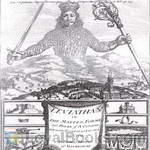 Leviathan, or The Matter, Forme and Power of a Common Wealth Ecclesiasticall and Civil
Leviathan, or The Matter, Forme and Power of a Common Wealth Ecclesiasticall and Civil
Books 1 and 2. Leviathan, or The Matter, Forme and Power of a Common Wealth Ecclesiasticall and Civil is a book written in 1651 by Thomas Hobbes. The book concerns the structure of society (as represented figuratively by the frontispiece, showing the state giant made up of individuals). In the book, Hobbes argues for a social contract and rule by a sovereign. Influenced by the English Civil War, Hobbes wrote that chaos or civil war – situations identified with a state of nature and the famous motto bellum omnium contra omnes (”the war of all against all”) – could only be averted by strong central government... | |
By: Upton Sinclair (1878-1968) | |
|---|---|
 The Profits of Religion
The Profits of Religion
The Profits of Religion: An Essay in Economic Interpretation is a non-fiction book by the American novelist and muckraking journalist Upton Sinclair, first published in 1917. It is a snapshot of the religious movements in the U.S. before its entry into World War I. In this book, Sinclair attacks institutionalized religion as a "source of income to parasites, and the natural ally of every form of oppression and exploitation." | |
By: Sarah Orne Jewett (1849-1909) | |
|---|---|
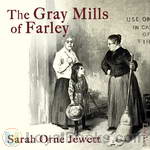 The Gray Mills of Farley
The Gray Mills of Farley
As contemporary today as it was over a century ago, this relatively unsentimental tale of labor relations still packs a punch. | |
By: H. G. Wells (1866-1946) | |
|---|---|
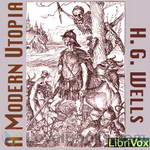 A Modern Utopia
A Modern Utopia
H. G. Wells's proposal for social reform was the formation of a world state, a concept that would increasingly preoccupy him throughout the remainder of his life. One of his most ambitious early attempts at portraying a world state was A Modern Utopia (1905). A Modern Utopia was intended as a hybrid between fiction and 'philosophical discussion'. Like most utopists, he has indicated a series of modifications which in his opinion would increase the aggregate of human happiness. Basically, Wells' idea of a perfect world would be if everyone were able to live a happy life... | |
 New Worlds For Old A Plain Account of Modern Socialism
New Worlds For Old A Plain Account of Modern Socialism
| |
By: Theodore Roosevelt (1858-1919) | |
|---|---|
 State of the Union Address
State of the Union Address
| |
By: Friedrich Schiller | |
|---|---|
 The Thirty Years War
The Thirty Years War
The History of the Thirty Years War is a five volume work, which followed his very successful History of the Revolt of the Netherlands. Written for a wider audience than Revolt, it is a vivid history, colored by Schiller’s own interest in the question of human freedom and his rationalist optimism. Volume 1 covers the background of the war, through the Battle of Prague in late 1620. (Introduction by Alan Winterrowd) | |
By: John Locke (1632-1704) | |
|---|---|
 Second Treatise of Government
Second Treatise of Government
| |
By: Frances Burney (1752-1840) | |
|---|---|
 The Wanderer
The Wanderer
This is the fourth and final novel by Fanny Burney, the author of Evelina, Cecilia, and Camilla. "Who is "Miss Ellis?" Why did she board a ship from France to England at the beginning of the French revolution? Anyway, the loss of her purse made this strange "wanderer" dependent upon the charity of some good people and, of course, bad ones. But she always comforts herself by reminding herself that it's better than "what might have been..." This is not only a mystery, not at all. It's also a romance which reminds readers of novels by Jane Austen... | |
By: William Morris (1834-1896) | |
|---|---|
 News From Nowhere
News From Nowhere
News from Nowhere (1890) is a classic work combining utopian socialism and soft science fiction written by the artist, designer and socialist pioneer William Morris. In the book, the narrator, William Guest, falls asleep after returning from a meeting of the Socialist League and awakes to find himself in a future society based on common ownership and democratic control of the means of production. In this society there is no private property, no big cities, no authority, no monetary system, no divorce, no courts, no prisons, and no class systems... | |
By: Peter Kropotkin (1842-1921) | |
|---|---|
 The Conquest of bread
The Conquest of bread
In this work, Kropotkin points out what he considers to be the fallacies of the economic systems of feudalism and capitalism, and how he believes they create poverty and scarcity while promoting privilege. He goes on to propose a more decentralised economic system based on mutual aid and voluntary cooperation, asserting that the tendencies for this kind of organisation already exist, both in evolution and in human society. | |
By: Brooks Adams (1848-1927) | |
|---|---|
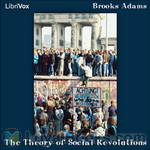 The Theory of Social Revolutions
The Theory of Social Revolutions
Brooks Adams (1848- 1927), was an American historian and a critic of capitalism. He believed that commercial civilizations rise and fall in predictable cycles. First, masses of people draw together in large population centers and engage in commercial activities. As their desire for wealth grows, they discard spiritual and creative values. Their greed leads to distrust and dishonesty, and eventually the society crumbles. In The Law of Civilisation and Decay (1895), Adams noted that as new population centers emerged in the west, centers of world trade shifted from Constantinople to Venice to Amsterdam to London... | |
By: Hilaire Belloc (1870-1953) | |
|---|---|
 The Free Press
The Free Press
I propose to discuss in what follows the evil of the great modern Capitalist Press, its function in vitiating and misinforming opinion and in putting power into ignoble hands; its correction by the formation of small independent organs, and the probably increasing effect of these last. (Introduction by Hilaire Belloc) | |
By: Thomas Moore (1779-1852) | |
|---|---|
 Memoirs of the Life of the Rt. Hon. Richard Brinsley Sheridan — Volume 01
Memoirs of the Life of the Rt. Hon. Richard Brinsley Sheridan — Volume 01
| |
By: Booker T. Washington (1856-1915) | |
|---|---|
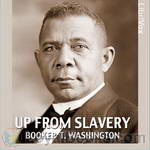 Up From Slavery
Up From Slavery
Up From Slavery is the 1901 autobiography of Booker T. Washington detailing his slow and steady rise from a slave child during the Civil War, to the difficulties and obstacles he overcame to get an education at the new Hampton University, to his work establishing vocational schools—most notably the Tuskegee Institute in Alabama—to help black people and other disadvantaged minorities learn useful, marketable skills and work to pull themselves, as a race, up by the bootstraps. He reflects on the generosity of both teachers and philanthropists who helped in educating blacks and native Americans... | |
By: Niccolò Machiavelli (1469-1527) | |
|---|---|
 Machiavelli, Volume I
Machiavelli, Volume I
| |
By: George William Russell (1867-1935) | |
|---|---|
 The National Being Some Thoughts on an Irish Polity
The National Being Some Thoughts on an Irish Polity
| |
By: Winston Churchill (1874-1965) | |
|---|---|
 Liberalism and the Social Problem
Liberalism and the Social Problem
| |
By: Marcus Tullius Cicero | |
|---|---|
 The Philippics
The Philippics
A philippic is a fiery, damning speech delivered to condemn a particular political actor. The term originates with Demosthenes, who delivered an attack on Philip II of Macedon in the 4th century BCE.Cicero consciously modeled his own attacks on Mark Antony, in 44 BC and 43 BC, on Demosthenes’s speeches, and if the correspondence between M. Brutus and Cicero are genuine [ad Brut. ii 3.4, ii 4.2], at least the fifth and seventh speeches were referred to as the Philippics in Cicero’s time. They were also called the Antonian Orations by Aulus Gellius... | |
By: John Charles Dent (1841-1888) | |
|---|---|
 The Story of the Upper Canadian Rebellion, Volume 1
The Story of the Upper Canadian Rebellion, Volume 1
| |
By: H. Rider Haggard (1856-1925) | |
|---|---|
 The Brethren
The Brethren
Set in the days of the Crusaders, this books tells of a young maiden named Rosamund, and her twin cousins. Godwin is the grey eyed thoughtful man, and Wulf is the blue eyed warrior. They are both knights of England and they are both in love with their fair cousin. But the riddle of the story is which does Rosamund love?The adventure begins when Rosamund is taken from England and carried to the East. The plot thickens as the two young knights follow her in hopes of rescuing her from the Muslim leader, Saladin... | |
By: George Bernard Shaw (1856-1950) | |
|---|---|
 Major Barbara
Major Barbara
George Bernard Shaw's Major Barbara focuses on the family of aristocratic Lady Britomart Undershaft and her estranged husband Andrew, a millionaire armaments manufacturer. Their daughters Sarah and Barbara are both engaged to be married, and Lady Britomart decides to ask Andrew for monetary support. Barbara is a Major in the Salvation Army, and agrees to let her father visit the mission in the East End of London where she works. In exchange, she agrees to visit his munitions factory. The conflict between Barbara's philanthropic idealism and her father's hard-headed capitalism clash when he decides he wants to fund the Salvation Army... | |
By: United States. Central Intelligence Agency | |
|---|---|
 The 2010 CIA World Factbook
The 2010 CIA World Factbook
| |
By: Owen Wister (1860-1938) | |
|---|---|
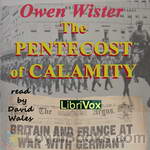 The Pentecost of Calamity
The Pentecost of Calamity
Nonfiction. Appalled by the savagery of World War I, Owen Wister in 1915 published an attempt to move the United States out of neutrality into joining the Allies against Germany. His aim was the quicker defeat of that nation. (Wister: “the new Trinity of German worship – the Super-man, the Super-race, and the Super-state.”) He was but one of many literary personages who joined in this effort. A moving quote: “Perhaps nothing save calamity will teach us what Europe is thankful to have learned again – that some things are worse than war, and that you can pay too high a price for peace; but that you cannot pay too high for the finding and keeping of your own soul.” | |
By: James Russell Lowell (1819-1891) | |
|---|---|
 The Writings of James Russell Lowell in Prose and Poetry, Volume V Political Essays
The Writings of James Russell Lowell in Prose and Poetry, Volume V Political Essays
| |
By: Thames Williamson | |
|---|---|
 Problems in American Democracy
Problems in American Democracy
Problems in American Democracy is a very detailed, specific explanation of some of the underlying and surface problems of a democracy system of government, particularly of the American form of democracy. Though lengthy, it is a great read for people who want to learn more about different types of government and the foundations of our own government in the United States of America. | |
By: Carl von Clausewitz (1780-1831) | |
|---|---|
 On War
On War
A classic work on military strategy by a veteran of the Napoleonic Wars. The author's style is dialectical: he makes two strong but opposing statements and then draws them together to describe many facets of war. Free of technical jargon, and suitable for modern readers. This audiobook is based on a 1909 English translation. | |